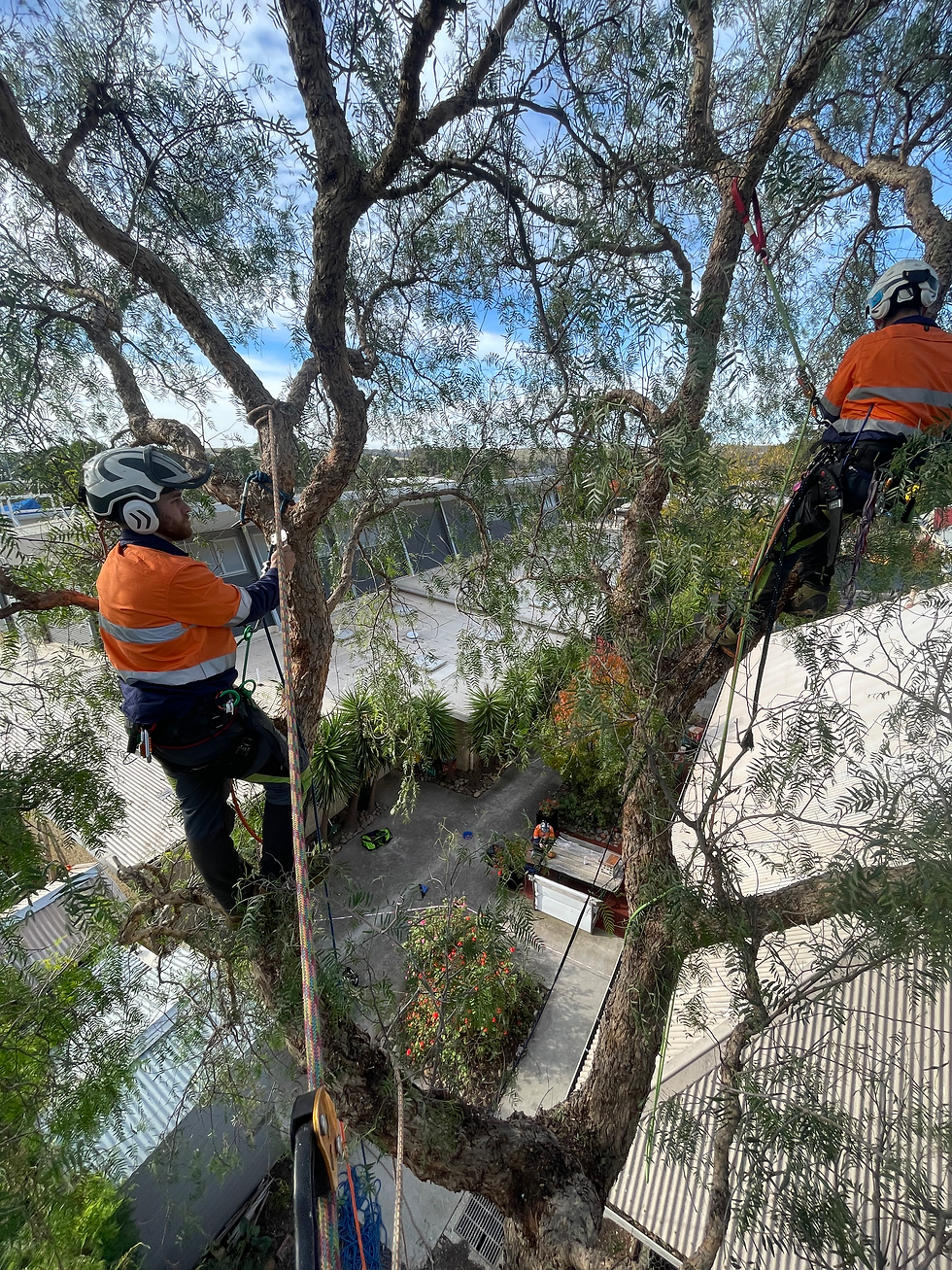Timing is Key: When Should Trees Be Trimmed to Avoid Damage and Ensure Safety?
- alexcraig45
- Apr 8, 2023
- 4 min read

As someone who has worked in the tree service industry for many years, I can attest to the importance of timely tree trimming. It not only enhances the appearance of your property but also ensures the safety of your family and neighbors. In this article, I will discuss when you should prune your trees to avoid damage and ensure safety, signs that indicate tree trimming is necessary, factors to consider before pruning, tree trimming techniques and tools, and benefits of regular tree trimming.
When to Trim Young Trees
It is important to prune young trees regularly to establish a strong structure and prevent future problems. The best time to prune young trees is during the dormant season, which is typically in the late fall or winter. During this time, the tree is not actively growing, and pruning will stimulate new growth in the spring. Young trees can be pruned to remove any damaged or diseased branches or to shape the tree into a desirable form. It is important to avoid removing more than 25% of the tree's canopy in a single pruning session, as this can stress the tree and lead to future problems.
When to Trim Mature Trees
Mature trees require less frequent pruning than young trees, but it is still important to prune them regularly to avoid safety hazards and maintain their health. The best time to prune mature trees is during the dormant season, just like with young trees. However, it is important to avoid pruning trees in the spring when new growth is starting, as this can attract pests and diseases. Mature trees can be pruned to remove dead, diseased, or damaged branches, to thin out the canopy, or to shape the tree. It is important to hire a professional tree trimming service to prune mature trees, as they can be dangerous to work on.
Signs That Indicate Tree Trimming Is Necessary
There are several signs that indicate a tree needs to be trimmed. If you notice any of these signs, it is important to hire a professional tree trimming service to address the issue. Signs that indicate tree trimming is necessary include:
Dead or broken branches
Overgrown or crossing branches
Branches that are too close to power lines or buildings
Signs of disease or pest infestation
Canopy that is too thick or uneven
Risks of Not Trimming Trees
Not trimming trees can lead to several risks, including safety hazards, property damage, and health problems for the tree. Overgrown or diseased branches can fall and cause damage to your property or injure someone. Trees that are too close to power lines or buildings can cause power outages or structural damage. Overgrown trees can also block sunlight and air circulation, leading to health problems for the tree.
Factors to Consider Before Trimming Trees
Before you prune your trees, there are several factors to consider. These factors include:
Tree species: Different tree species have different pruning requirements.
Tree age: Younger trees require more frequent pruning than mature trees.
Time of year: It is important to prune trees during the dormant season to avoid attracting pests and diseases.
Tree location: Trees that are close to power lines or buildings require special trimming techniques.
Tree size: Larger trees require more advanced trimming techniques and equipment.
Tree Trimming Techniques and Tools
There are several tree trimming techniques and tools used in the tree service industry. These techniques and tools include:
Crown thinning: This technique involves removing some of the smaller branches in the tree's canopy to improve air circulation and sunlight penetration.
Crown raising: This technique involves removing the lower branches of the tree to provide clearance for pedestrians, vehicles, and buildings.
Crown reduction: This technique involves removing some of the larger branches in the tree's canopy to reduce its overall size.
Pruning saws: These saws are used to remove larger branches from the tree.
Pruning shears: These shears are used to remove smaller branches from the tree.
Pole saws: These saws are used to reach high branches in the tree's canopy.
Hiring a Professional Tree Trimming Service
Tree trimming can be dangerous, especially for larger trees or trees close to power lines or buildings. It is important to hire a professional tree trimming service to ensure the job is done safely and correctly. When looking for a tree trimming service, it is important to choose a company that is licensed and insured, has experience working on trees similar to yours, and provides a written estimate for the work.
Benefits of Regular Tree Trimming
Regular tree trimming provides several benefits, including:
Improved tree health: Removing dead or diseased branches can improve the overall health of the tree.
Enhanced appearance: Regular trimming can improve the appearance of your property.
Safety: Regular trimming can prevent safety hazards caused by overgrown or diseased branches.
Increased property value: A well-maintained property with healthy trees can increase the value of your home.
Conclusion: Importance of Timely Tree Trimming
In conclusion, timely tree trimming is essential for the health and safety of your trees and your property. Whether you have young trees that need frequent pruning or mature trees that require less frequent pruning, it is important to hire a professional tree trimming service to ensure the job is done safely and correctly. By pruning your trees regularly, you can enjoy the benefits of improved tree health, enhanced appearance, and increased property value. Contact Vantage Tree Services for all your tree trimming needs.





Comments